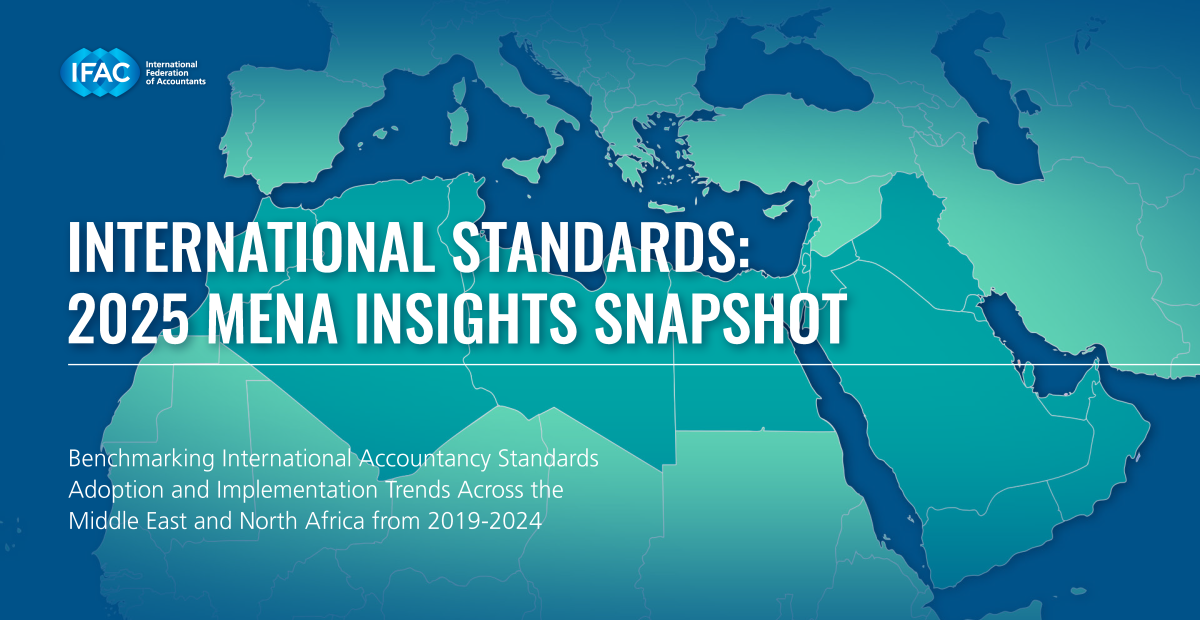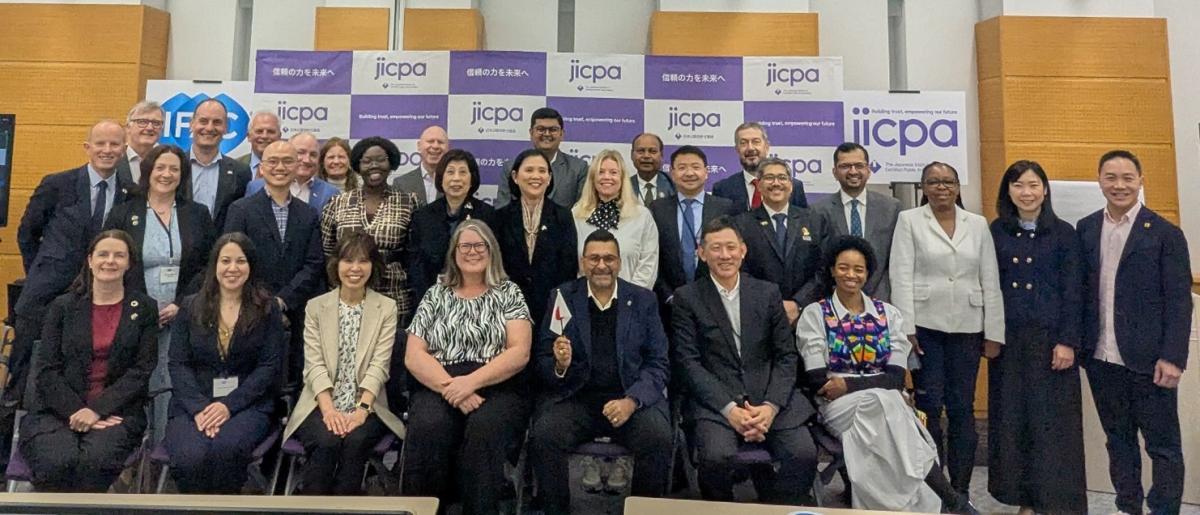IFAC Report Finds Nearly All MENA Jurisdictions Advancing on Standards Adoption
The International Federation of Accountants (IFAC) released the International Standards: 2025 MENA Insights Snapshot to benchmark international accountancy standards adoption and implementation trends across the Middle East and North Africa from 2019–2024. The report was launched at IFAC Connect MENA 2025 in Riyadh, co-hosted with the Saudi Organization for Chartered and Professional Accountants (SOCPA).

The snapshot, available in English and Arabic thanks to translation by SOCPA, shows that adoption of international standards has accelerated significantly across MENA in recent years. Nearly all jurisdictions in the region have taken steps to align with International Standards on Auditing, International Financial Reporting Standards, and the International Code of Ethics for Professional Accountants. Several countries have made notable progress in embedding International Public Sector Accounting Standards into public sector reporting frameworks, reflecting growing recognition of the importance of transparency in government finances.
Differences in regulatory oversight, technical capacity, and resourcing are opportunities for advancement, particularly in public sector reporting and among smaller professional accountancy organizations.
Lee White, IFAC Chief Executive Officer, said:
“The 2025 MENA Insights Snapshot demonstrates both the progress and the challenges in ensuring that adoption progresses into implementation. IFAC Connect MENA is the perfect platform to launch this work, because the discussions here are focused on turning commitments into action, aided by the leadership of the accountancy profession. Adoption is a first step and real impact comes when standards are embedded in practice and serve the public interest.”
Dr. Ahmad Almeghames, CEO of SOCPA and IFAC Board Member, said: “We’re proud to see that Saudi Arabia is the only jurisdiction in the region to have adopted all seven baselines. This achievement reflects the Kingdom’s commitment to advancing the profession and aligning with the highest international benchmarks and serves as an example for the wider MENA region showing how strong leadership, investment in capacity, and collaboration across regulators, standard setters, and the profession can accelerate progress.”
The report will inform IFAC’s ongoing work with MENA member organizations, regulators, and development partners to strengthen capacity, accelerate adoption, and ensure consistent, high-quality implementation across the region.
Access the 2025 MENA Insights Snapshot in English and Arabic.
About IFAC
IFAC, by connecting and uniting its members, makes the accountancy profession truly global.
IFAC member organizations are champions of integrity and professional quality, and proudly carry their membership as a badge of international recognition.
IFAC and its members work together to shape the future of the profession through learning, innovation, a collective voice, and commitment to the public interest.


